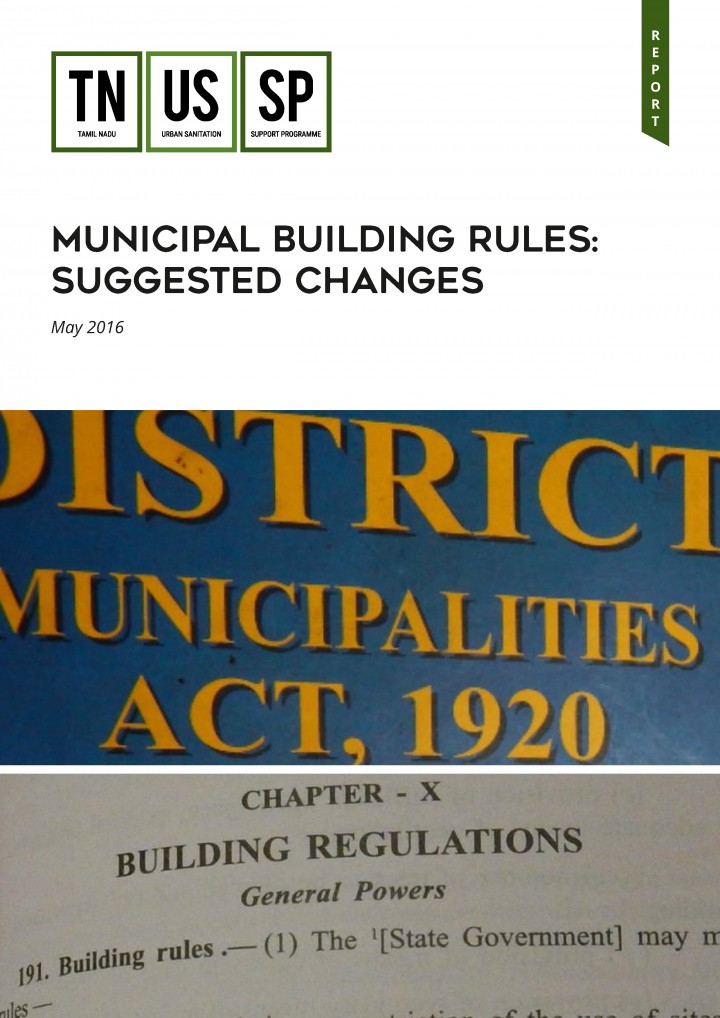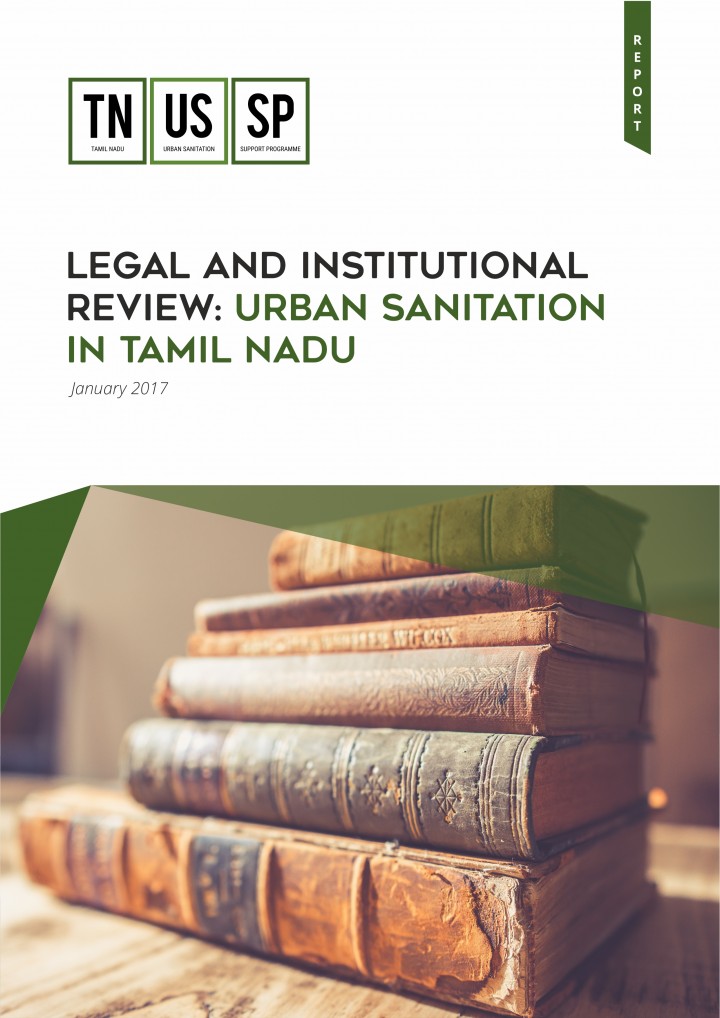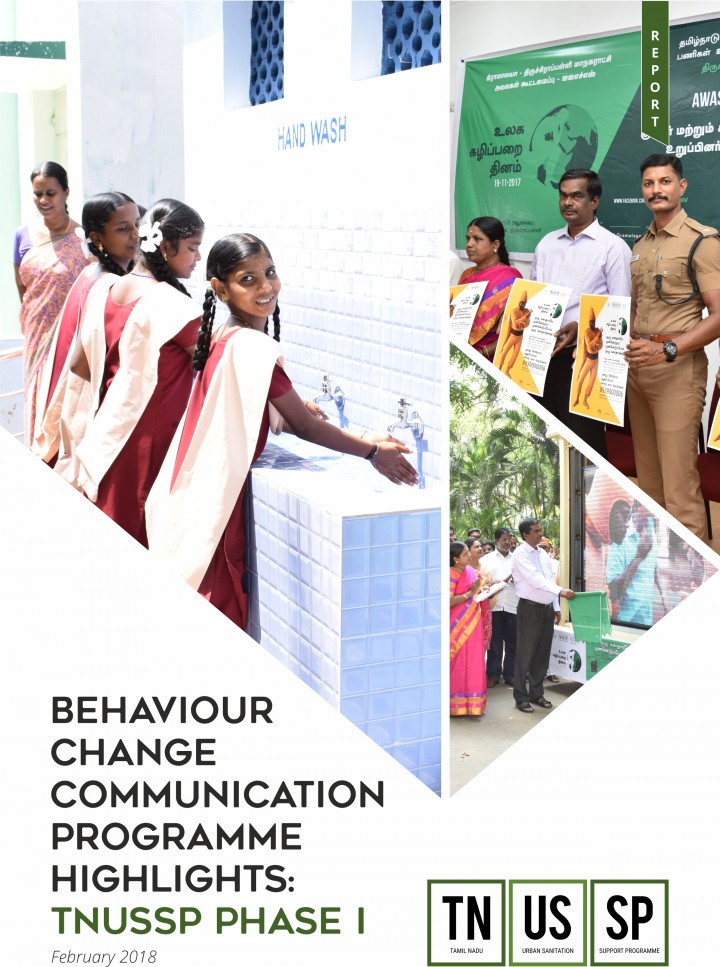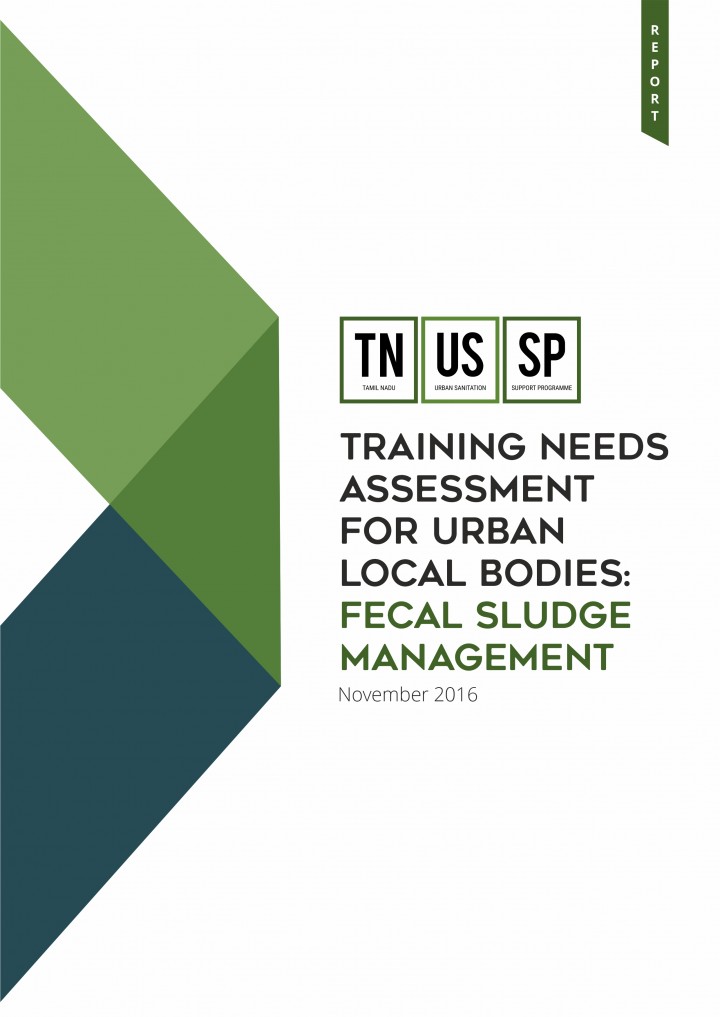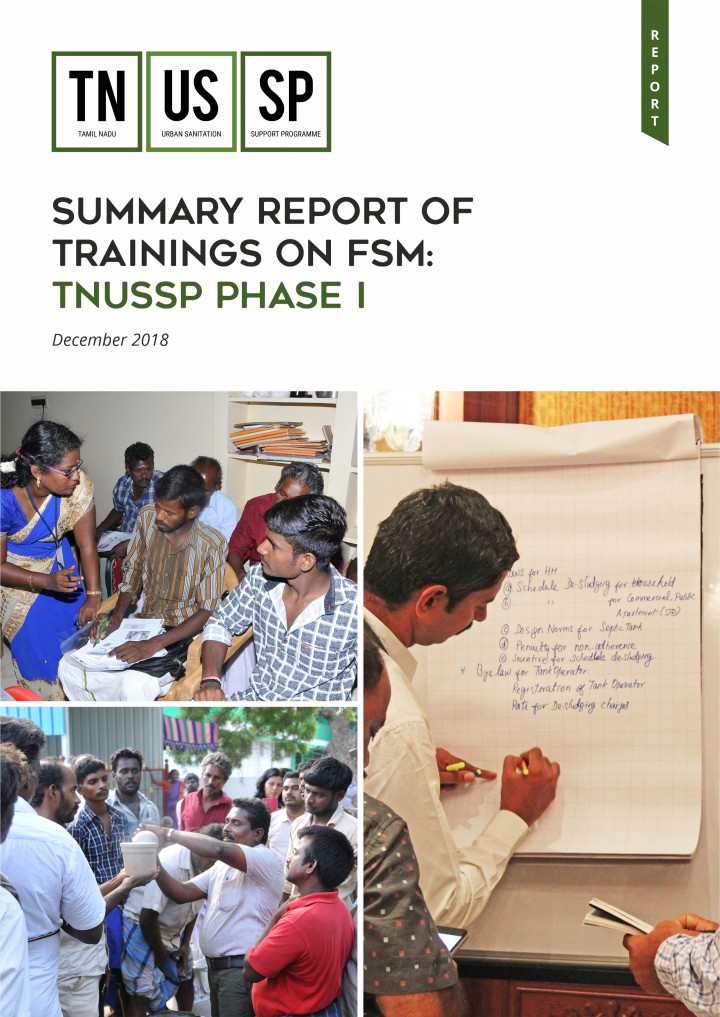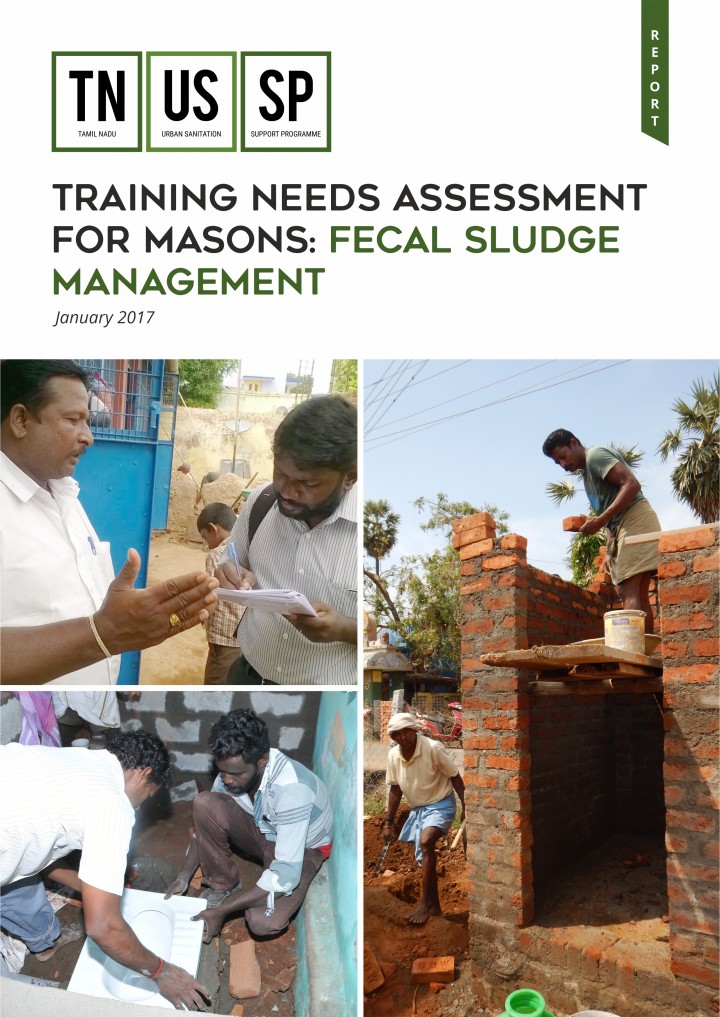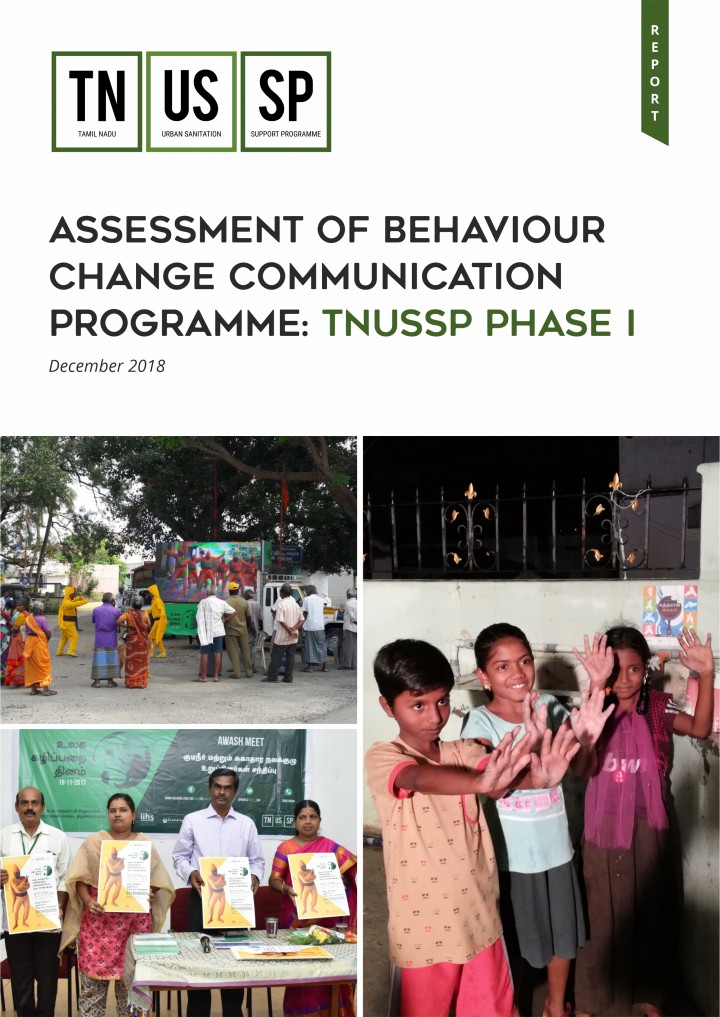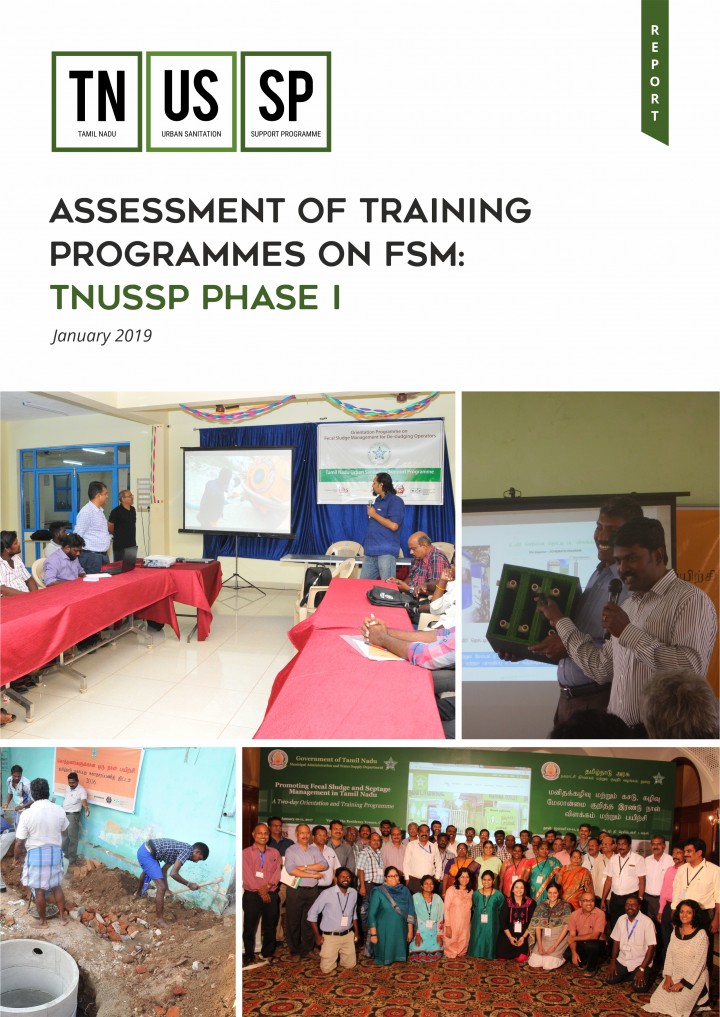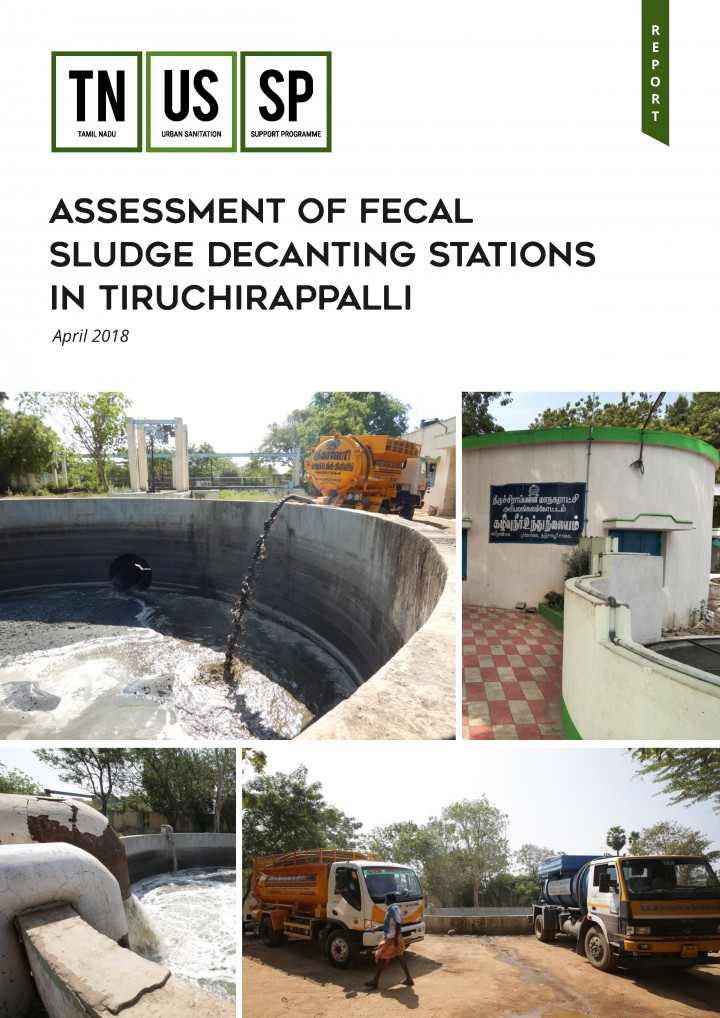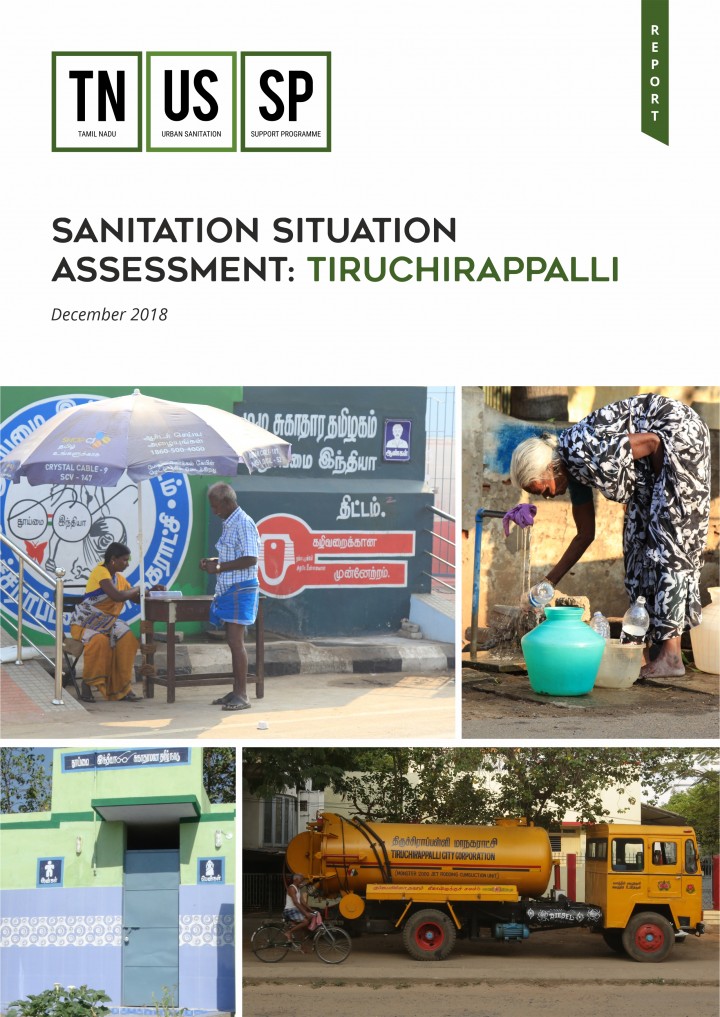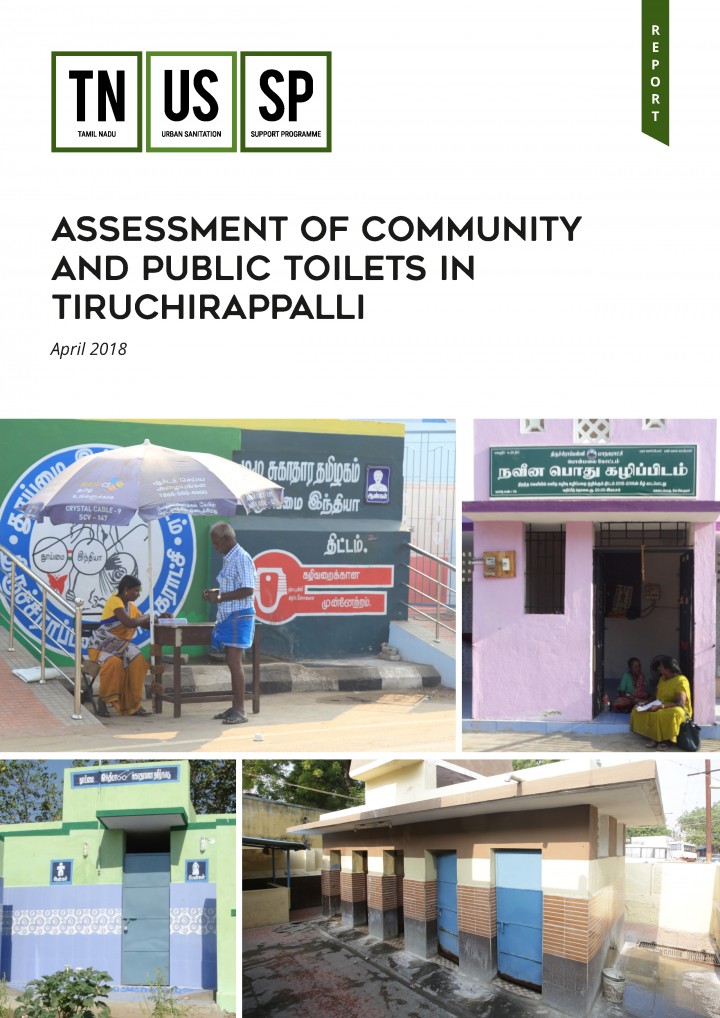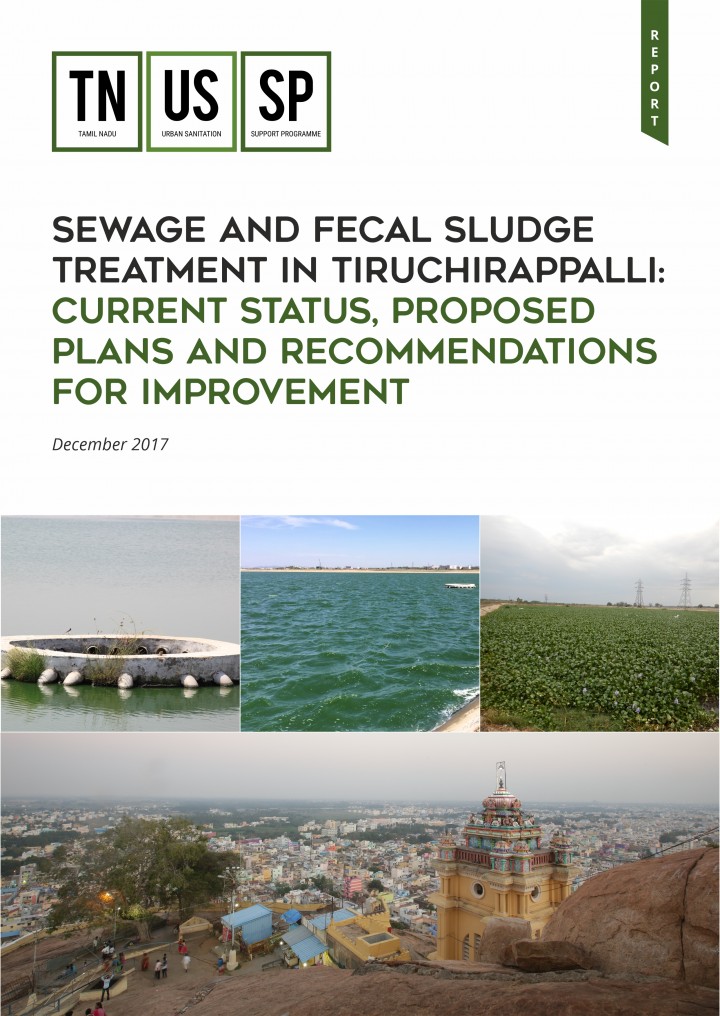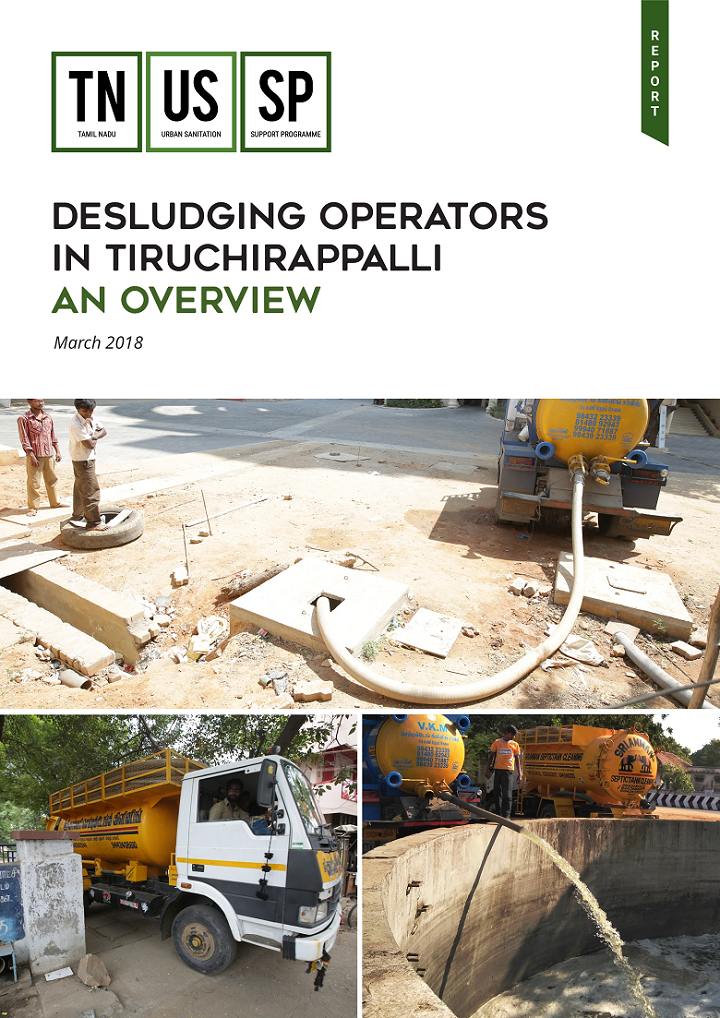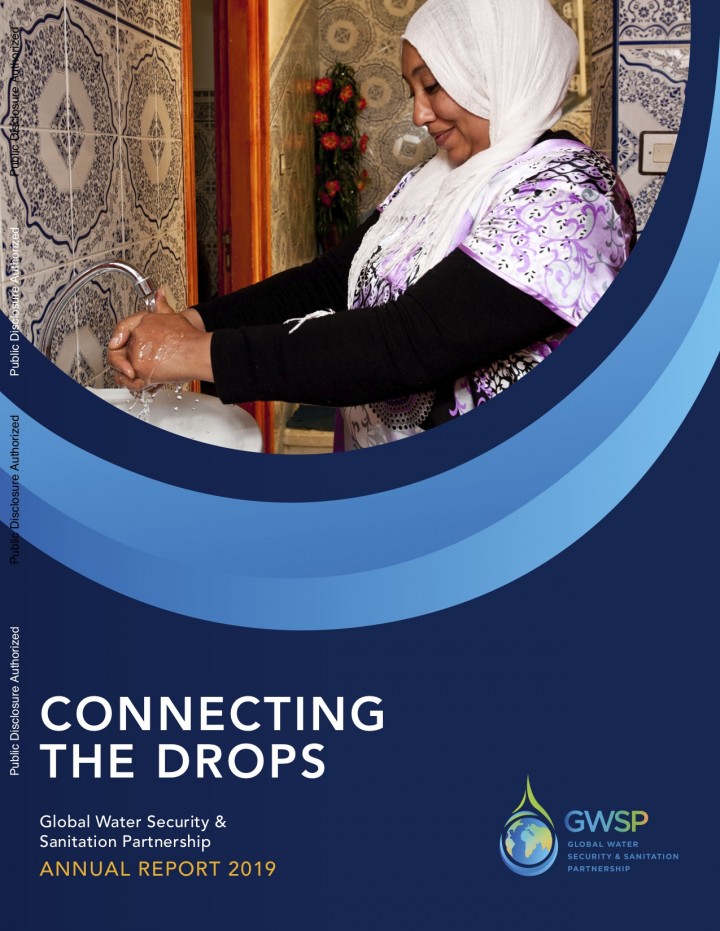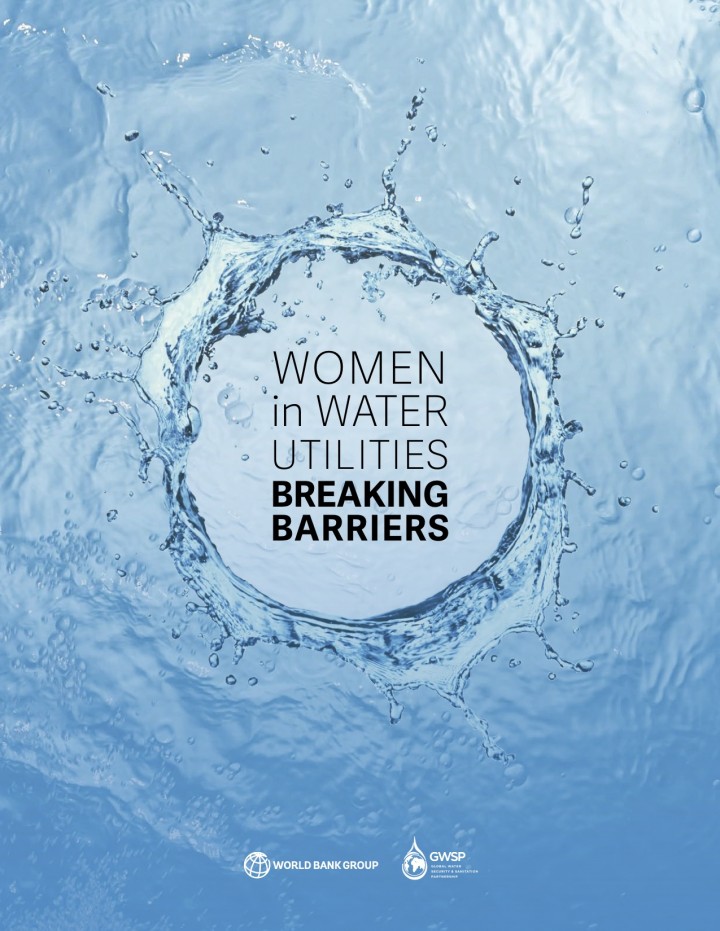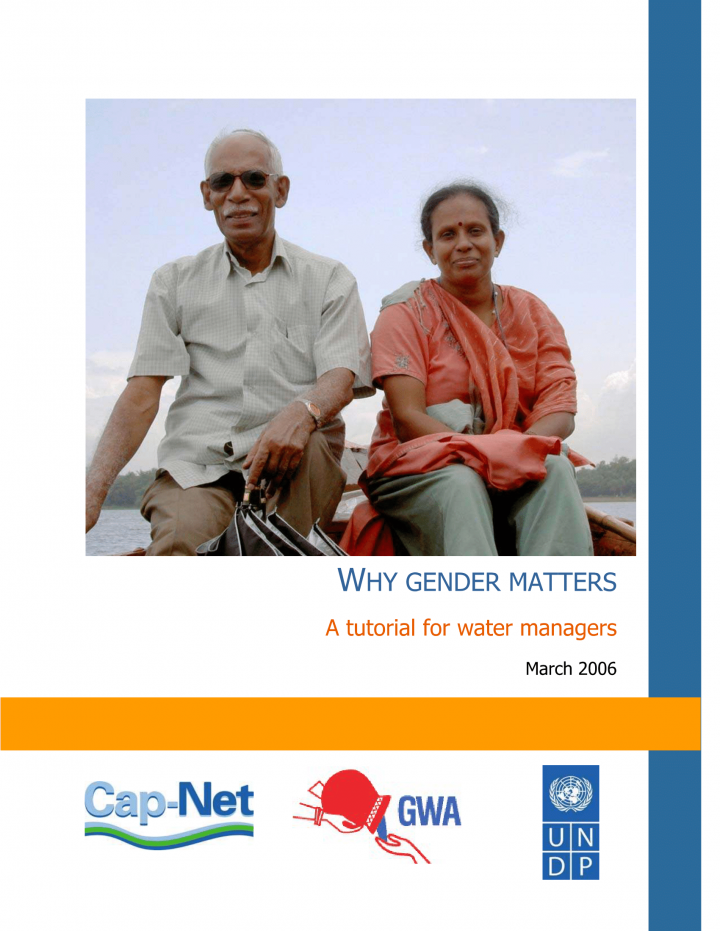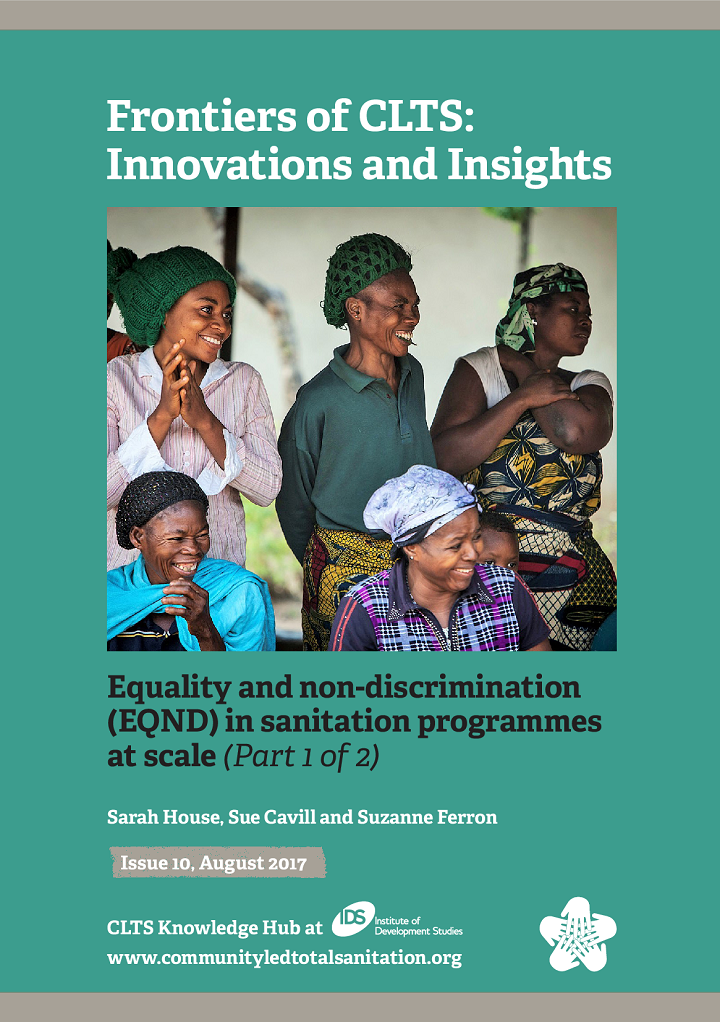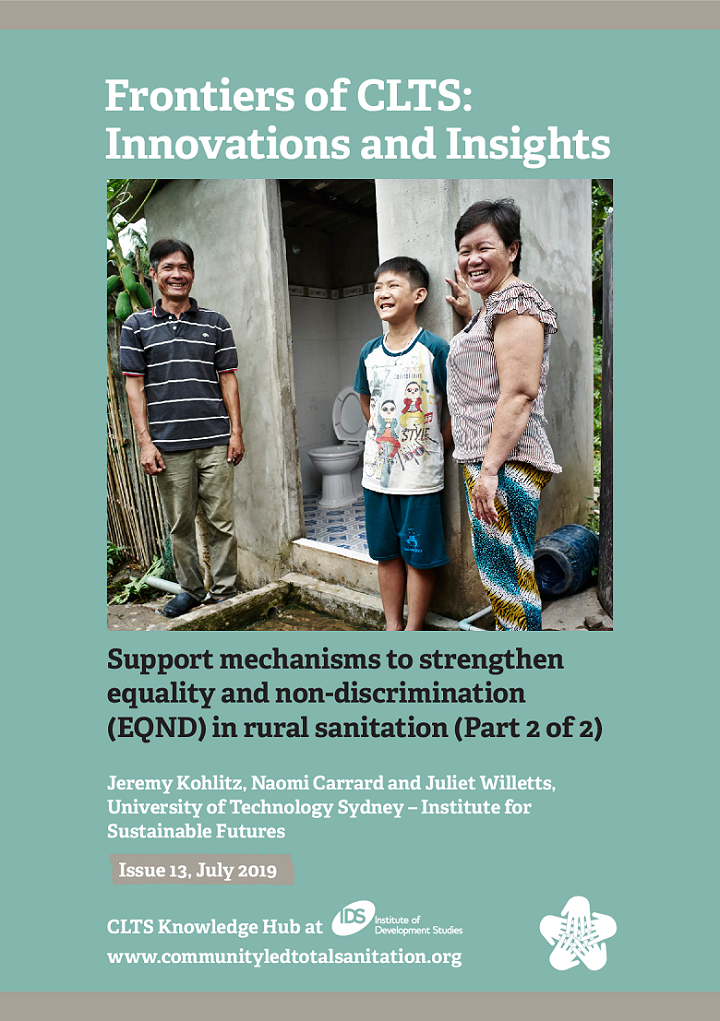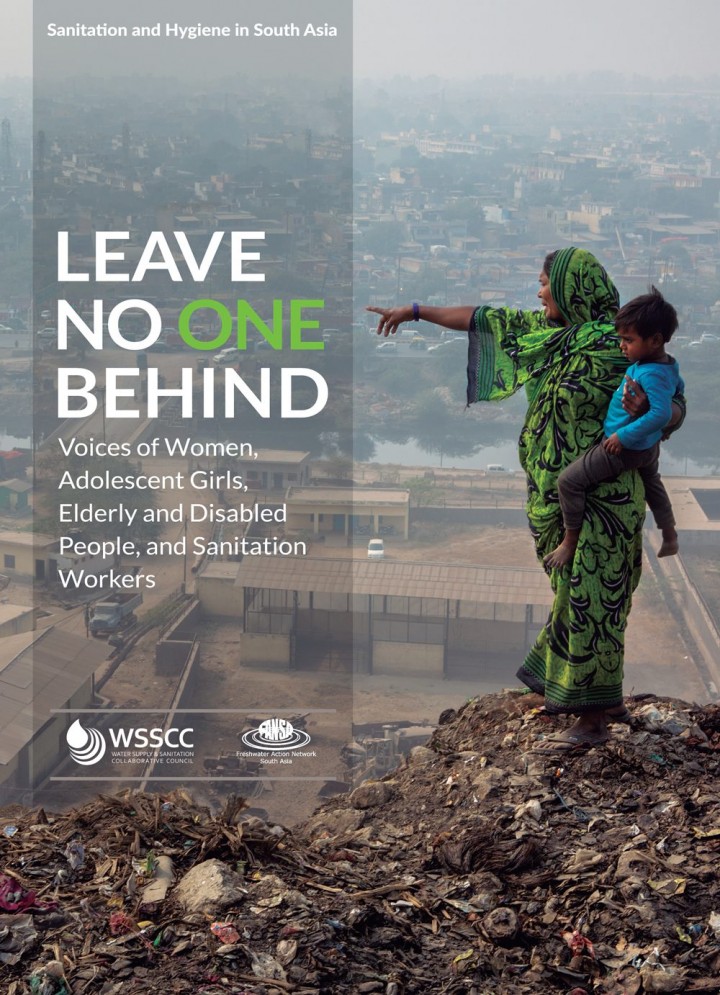TNUSSP (2016) Municipal Building Rules: Suggested Changes
In order to effect improvements across the sanitation chain, an assessment was undertaken of the existing practices with respect to on-site containment structures. While already existing on-site structures need to be surveyed to ensure compliance with sanitary requirements, and enforcement in this regard has been taken up by ULBs in Tamil Nadu, another intervention identified was improvements to the existing procedures for receiving and approving […]
TNUSSP (2017) Legal and Institutional Review: Urban Sanitation in Tamil Nadu
In order to achieve 100 percent sanitation and improve public health outcomes in urban Tamil Nadu, TNUSSP undertook a legal, regulatory and institutional review across the sanitation chain. This review mapped the institutional arrangements, laws, and regulations that govern sanitation in the State. This report provides a summary of the review along with the key areas for improvement and a road map to achieve 100 […]
TNUSSP (2018) Behaviour Change Communication Programme Highlights: TNUSSP Phase I
BCC is a key component of the TNUSSP and seeks to address the issue of behaviour change through a range of approaches, of which communication campaigns and activities, targeted at appropriate segments, is an important part. This document broadly outlines the communication campaign and activities conducted at Tiruchirappalli, PNP and NNP.
TNUSSP (2016) Training Needs Assessment for Urban Local Bodies: Fecal Sludge Management
As part of the capacity building initiatives, a Training Needs Assessment (TNA) of officers in the Urban Local Bodies (ULBs) was conducted. The study was conducted at selected ULBs in the State, with an aim to identify the current capacity of the organisations to implement FSM. The TNA focused on the institutional, administrative, financial and human capacity of the ULBs and assessed the existing gaps […]
TNUSSP (2018) Summary Report on Trainings On FSM: TNUSSP Phase I
Capacity building initiatives are one of the key approaches followed by TNUSSP to effect changes across the entire sanitation chain. As part of this, orientation and training programmes were held for a range of stakeholders such as officers at the state level and of Urban Local Bodies, engineers, masons and desludging operators. This report presents details of the training/orientation programmes undertaken for these four different […]
TNUSSP (2017) Training Needs Assessment for Masons: Fecal Sludge Management
The Training Needs Assessment of masons was conducted to identify the required training needs based on the current levels of education and training of masons, their current level of knowledge and practices in toilet construction, and the construction of on-site containment structures. The findings from the study provide an insight in to the knowledge and practice gaps of masons and help identify their training needs.
TNUSSP (2018) Assessment of Behaviour Change and Communication Programmes: TNUSSP Phase I
As part of the BCC component during Phase 1 of TNUSSP, a range of activities were undertaken in Tiruchirappalli and PNP – NNP. This included activities with general public, school children, sanitary workers and with Government officers of the ULBs. An assessment was carried out to understand the effectiveness of these activities, the findings of which are presented in this report.
TNUSSP (2019) Assessment of Training Programmes on FSM: TNUSSP Phase I
Capacity building initiatives and programmes were conducted for a range of stakeholders – Government officers, engineers, masons and desludging operators. An assessment was undertaken to see the impact of these programmes on the stakeholders and if they have been able to apply new learnings in their work environment. This report presents the findings of the assessment.
TNUSSP (2018) Assessment of Fecal Sludge Decanting Stations in Tiruchirappalli
The Sewage Treatment Plant at Tiruchirappalli has been used for co-treating fecal sludge by utilizing pumping stations as receiving/decanting stations. An assessment was carried out at the decanting stations in Tiruchirappalli with an objective to check the adequacy of existing facilities, identify areas of improvement and develop a methodology for feasibility assessment for converting pumping stations to fecal sludge receiving facilities. This report elaborates on […]
TNUSSP (2018) Sanitation Situation Assessment: Tiruchirappalli
Tiruchirappalli has focused on urban sanitation over a long period of time. This report examines Trichy’s sanitation situation through a comprehensive understanding of existing sanitation arrangements, and highlights key deficiencies that can be addressed by a proposed action and investment plan.
TNUSSP (2018) Assessment of Community and Public Toilets in Tiruchirappalli
Tiruchirappalli has been a pioneer in the community led management model of toilets. A rapid assessment survey was carried out across 400 community and public toilets in the city to assess their current state and understand the various models used to operate and maintain them. This report presents the findings from the rapid assessment survey.
TNUSSP (2017) Sewage and Fecal Sludge Treatment in Tiruchirappalli : Current Status, Proposed Plans and Recommendations for Improvement
An assessment of the coverage of sewerage network and effectiveness of the Panjapur Sewage Treatment Plant (STP) in Tiruchirappalli for safe treatment and disposal of sewage and fecal sludge for existing and future loads was carried out. The implications of the proposed extension of the sewer network were studied, with respect to the existing and proposed sewage treatment facilities. Institutional arrangements for operation and maintenance […]
TNUSSP (2018) Desludging Operators in Tiruchirappalli: An Overview
Tiruchirappalli is a partially sewered city and a vast majority of the households are dependent on on-site sanitation systems. The city is serviced by nearly 30 private desludging operators and few urban local body owned trucks. In-depth interviews with desludging operators were conducted to understand their business, operational practices and challenges. This report presents the findings from interviews with desludging operators along with the way […]
International Bank for Reconstruction and Development (2019) Connecting the Drops Global Water Security & Sanitation Partnership | ANNUAL REPORT 2019
The Global Water Security & Sanitation Partnership (GWSP) is an international partnership launched in 2017 to support countries around the world in meeting the targets related to water in the Sustainable Development Goals (SDGs), particularly those of Goal 6, which calls on the global community to “ensure availability and sustainable management of water and sanitation for all.” Administered by and housed within the World Bank’s […]
World Bank (2019) Women in Water Utilities Breaking Barriers
The crucial role women play in managing and safeguarding water at the domestic and community level has long been recognized. Across the world, women and girls bear the brunt of collecting water—often from long distances or in harsh conditions—and usually bear responsibility for household hygiene and sanitation needs. What has been less explored is the intersection between water, gender, and employment. Water is a crucial […]
CAP-NET, GWA (2006) Why gender matters - A tutorial for water managers
This tutorial is primarily aimed at those people interested in or responsible for managing water resources. We wanted to show how addressing gender will improve efficiency of water use and environmental sustainability. A gender approach will also improve social benefits and equity from use of our water resources.
von Muench, E. (2020) Tutorial videos to explain Wikipedia editing for WASH topics and SDGs
These Youtube playlists contain several videos to explain how to edit WASH topics in Wikipedia. The videos in Playlist 1 were produced for SuSanA, funded by Bill & Melinda Gates Foundation through contract with Stockholm Evironment Institute. The videos in Playlist 2 were produced for the SDG edit-a-thon in September 2020, funded by Project Everyone, UK.
House, S., Cavill, S., Ferron, S. (2017) Equality and non-discrimination (EQND) in sanitation programmes at scale. (Part 1 of 2)
A well-facilitated Community-Led Total Sanitation (CLTS) programme that pro-actively considers and involves people who might be disadvantaged has been shown to have many benefits. A lack of this can and will often have negative impacts and make programmes and ODF unsustainable. This issue of Frontiers of CLTS looks at who should be considered potentially disadvantaged, how they can effectively participate and what may be needed […]
Kohlitz, J., Carrard, N., Willetts, J. (2019) Support mechanisms to strengthen equality and non-discrimination (EQND) in rural sanitation. (Part 2 of 2)
Achievement of adequate and equitable access to sanitation for all, and an end to open defecation, requires that special attention is given toward disadvantaged groups. It has become apparent that the benefits of conventional rural sanitation programming and service delivery are often not spread equally, and risk leaving disadvantaged groups behind. This issue of Frontiers of CLTS examines the potential of support mechanisms designed to […]
WSSCC, FANSA (2015) Leave No One Behind - Voices of Women, Adolescent Girls, Elderly and Disabled People, and Sanitation Workers
This publication summarizes the sanitation and hygiene hopes and aspirations of thousands of women and men of different ages and physical ability, across rural and urban areas in eight South Asian countries. In these countries, over a billion people are without safe sanitation. They represent individuals and groups rarely heard because they are seldom asked what their constraints are, what they need, how they cope […]
